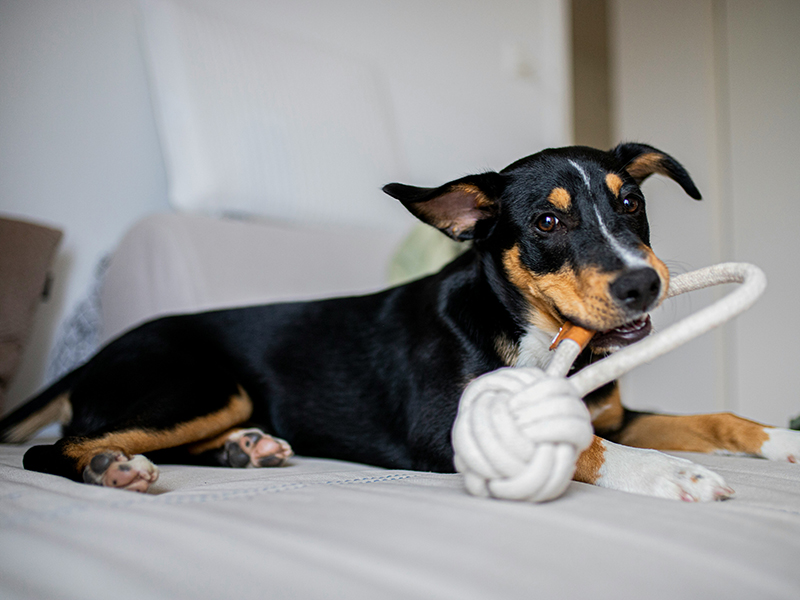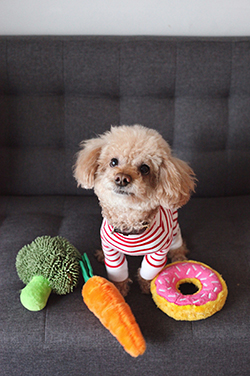Dog toys are not just playthings; they are vital for your dog's mental stimulation, physical health, and dental hygiene. However, these beloved toys can also harbor bacteria, yeast, and mold, posing health risks to both pets and their human companions. Knowing how to clean dog toys and the frequency of cleaning them is essential for maintaining a safe and healthy environment.
Types of Dog Toys and Cleaning Methods
Rubber, Nylon, and Plastic Toys
These toys are the easiest to clean due to their durable material. For a deep clean, mix warm water with a pet-safe detergent* or use a vinegar-water solution for a natural option. Soak the toys, scrub with a brush to remove dirt and saliva, and rinse thoroughly. You can also place these toys in the top rack of the dishwasher. Use a gentle, pet-safe detergent* and run them on a hot cycle without a heated dry option.
Rope Toys
Rope toys can be tricky due to their absorbent nature, which makes them a breeding ground for bacteria. To clean, soak them in a solution of vinegar and water or a mild detergent, then put them in the washing machine inside a pillowcase or laundry bag. Use hot water and a gentle cycle, then dry thoroughly, preferably in the sun, to prevent mold and mildew growth.
Plush Toys
Soft toys should be handled with care. Check the label for cleaning instructions; most can be machine-washed in a gentle cycle with pet-safe detergent.* For toys with squeakers, hand washing is recommended to avoid damaging the squeaker. Air dry or use a dryer on a low-heat setting.
Cleaning Frequency
The frequency of cleaning dog toys varies depending on several factors, including the type of toy, how often your dog plays with it, and whether they tend to slobber heavily. A general guideline is as follows:
- Heavy Use: Clean weekly. This applies to toys that your dog plays with daily or are their favorites.
- Moderate Use: Clean bi-weekly or at least once a month. These are toys that your dog occasionally plays with.
- Light Use: Clean monthly or as needed. Toys that are seldom touched can be cleaned less frequently but should still be kept sanitary.
Additional Tips
- Regularly inspect toys for signs of wear and tear. Discard any that are broken or have sharp edges to prevent injury.
- Consider having a rotation of toys to minimize wear and tear and keep your dog interested.
- Always use pet-safe detergents* and avoid harsh chemicals that could harm your dog if ingested.
*One way to find a pet-safe detergent is to put this term into the search field at Amazon.com, regardless of whether or not you wish to purchase from that site.



 Autism Assist Dog Has Brought Confidence and Calm Over the Years
Autism Assist Dog Has Brought Confidence and Calm Over the Years



